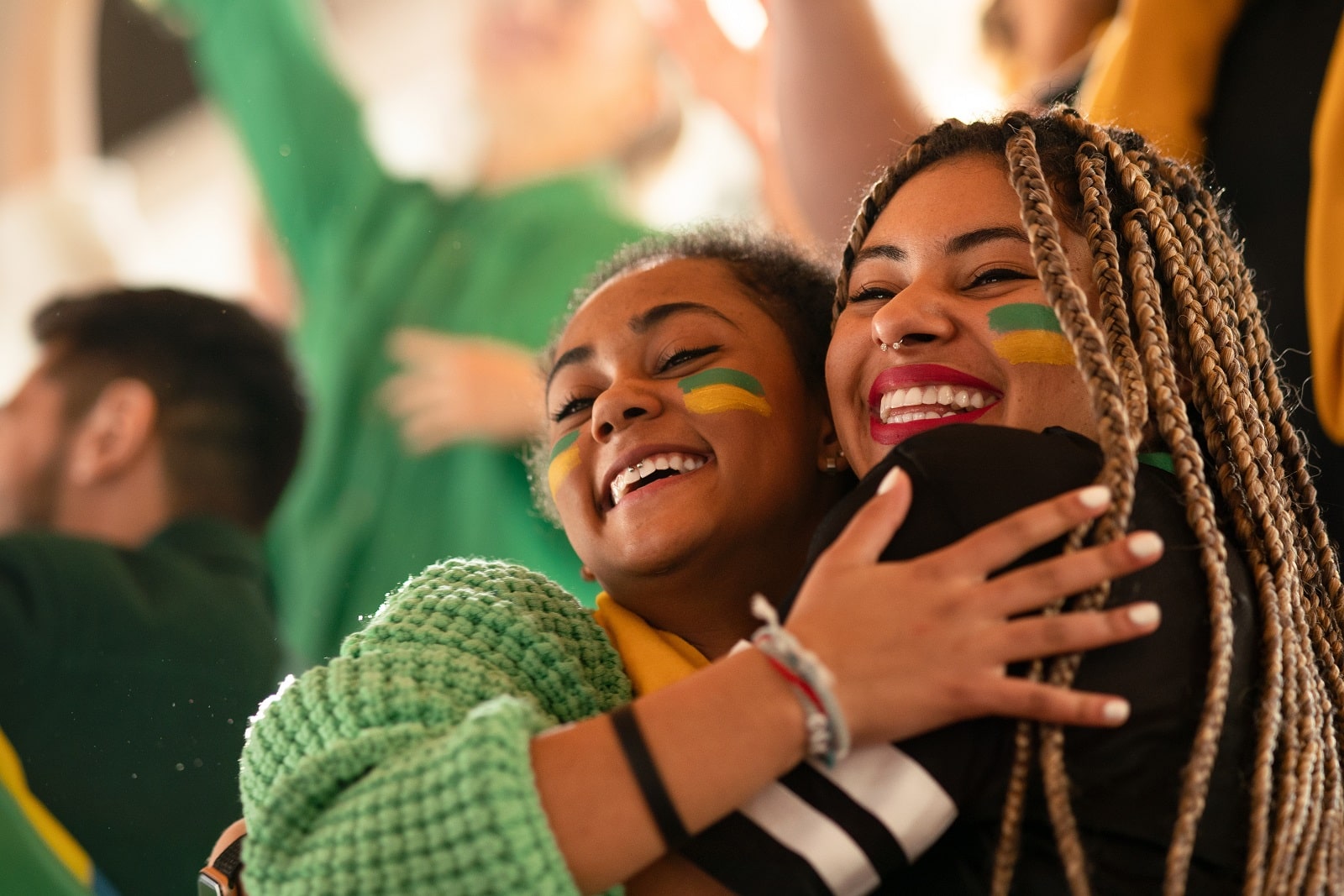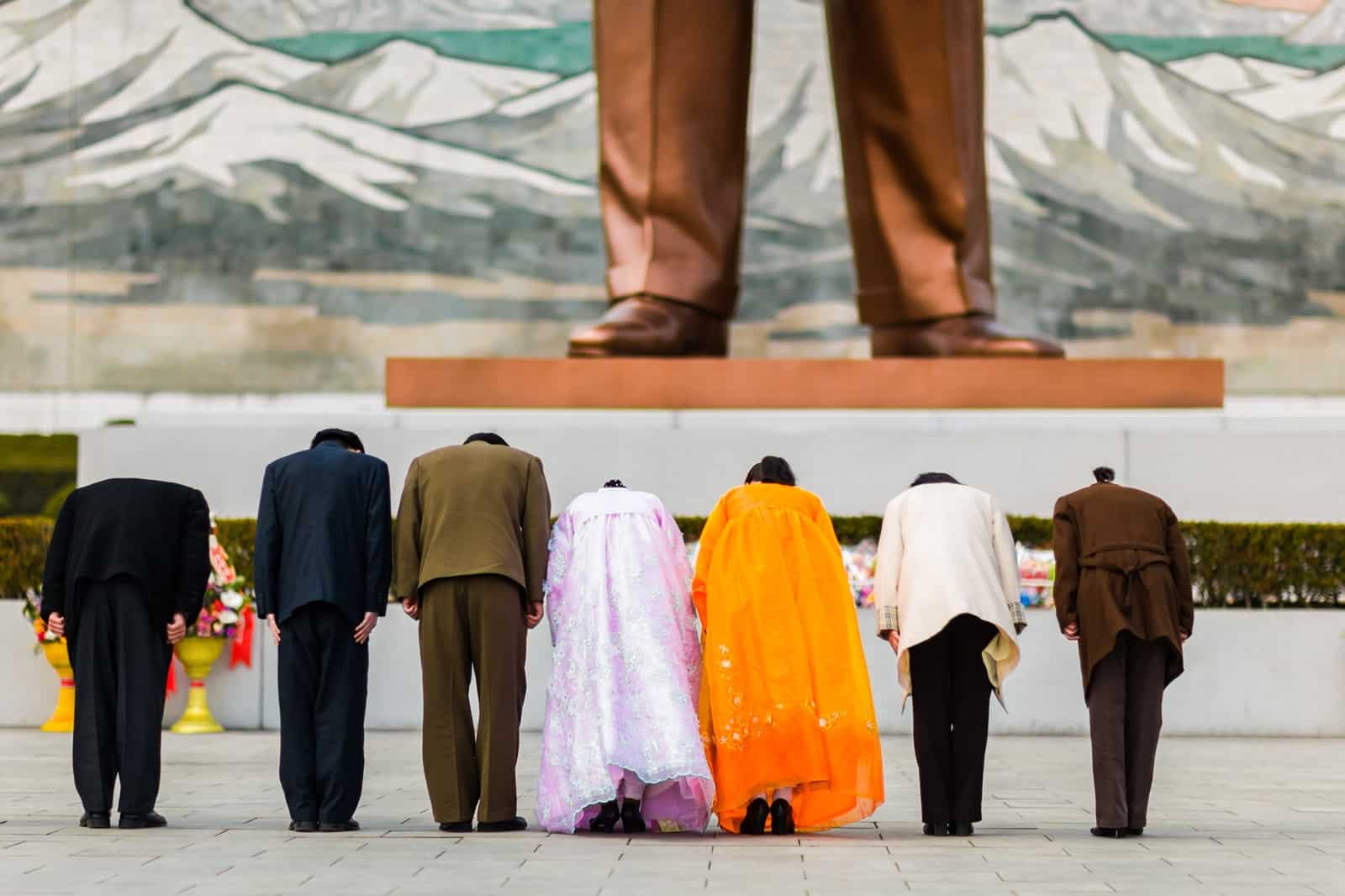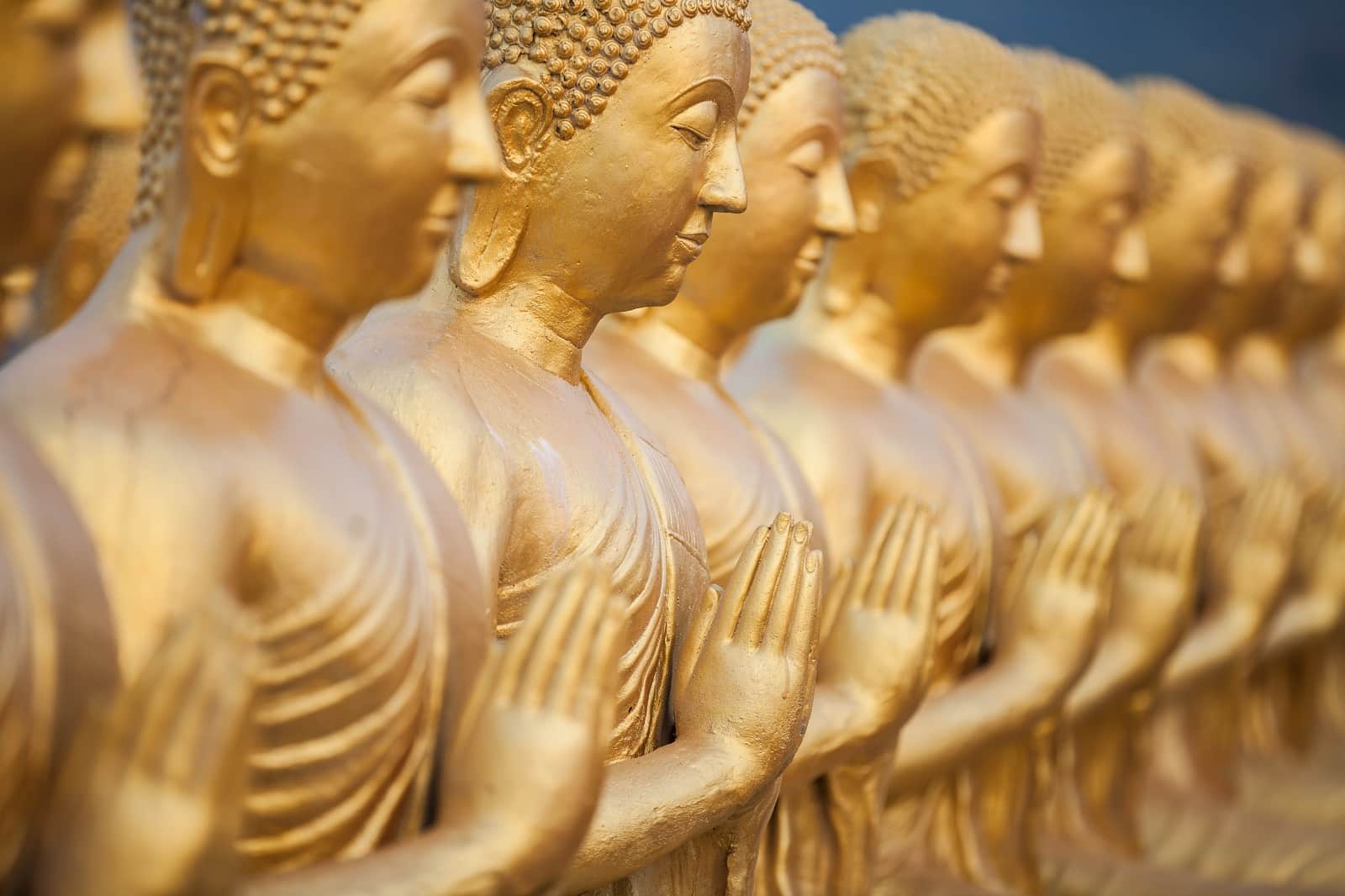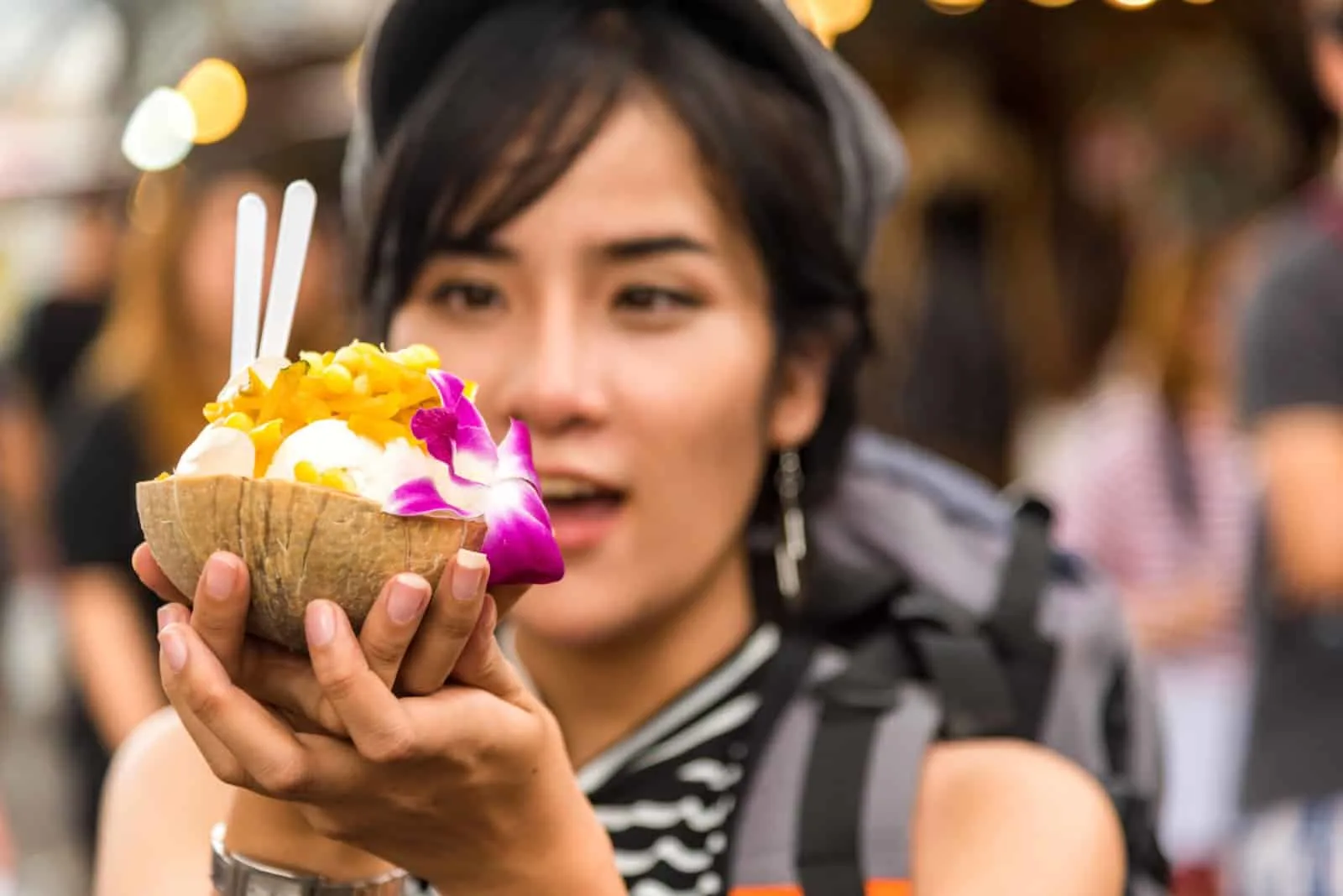When traveling internationally, understanding and respecting local etiquette and cultural norms is as important as packing your passport. Different countries have unique customs, ranging from dining etiquette to greeting styles. This guide will explore etiquette in various global destinations, helping you navigate cultural nuances and engage respectfully with local traditions.
#1. Japan

Image Credit: Shutterstock / Sergii Rudiuk
Your respect for local customs speaks volumes in Japan. Politeness is paramount, and this extends to every aspect of life. When greeting, bowing is customary, with the depth of the bow indicating the level of respect or gratitude. In dining, it’s customary to use chopsticks correctly, never sticking them vertically into a bowl of rice. Be punctual for appointments, as tardiness is seen as disrespectful. Also, be mindful of your behavior in public places; loud conversations, especially on phones, are frowned upon on public transport and in restaurants.
Insider’s Tip: Speaking loudly, especially on your phone, is frowned upon in public transport.
#2. France

Image Credit: Shutterstock / Selenit
Particularly in cities like Paris, courtesy is key. Always greet shopkeepers when entering and leaving a store. A quick handshake is common in social settings, but friends may greet each other with a light kiss on both cheeks. Dining etiquette holds significant importance; wait for the host to start, and remember that bread is typically placed directly on the table, not on a bread plate. Speaking even a little French goes a long way in showing respect for the local culture.
Insider’s Tip: When dining out, splitting the bill is not as common as in other countries.
#3. United Arab Emirates

Image Credit: Shutterstock / oneinchpunch
Cultural sensitivity, especially regarding Islamic customs, is crucial in the UAE. Dress conservatively, covering shoulders and knees, particularly in more traditional areas and during Ramadan. Greetings often involve a handshake, though some men and women may prefer not to shake hands with the opposite sex due to religious reasons. Show respect by using your right hand to eat and exchange items. During Ramadan, be discreet about eating, drinking, or smoking during daylight hours in public.
Insider’s Tip: During Ramadan, refrain from eating, drinking, or smoking in public during daylight hours.
#4. India

Image Credit: Shutterstock / WESTOCK PRODUCTIONS
The diversity of cultures and traditions in India calls for a flexible and respectful approach. The traditional greeting is “Namaste,” with palms pressed together in front of the chest and a slight bow. Indian timekeeping can be more relaxed, so patience is often necessary. When dining, using your hands is common, but only with your right hand. Be mindful of religious sentiments, especially when visiting places of worship – removing shoes is a must.
Insider’s Tip: Be prepared for a more flexible approach to time, commonly known as ‘Indian Standard Time’.
#5. China

Image Credit: Shutterstock / Monkey Business Images
In China, understanding local customs will enhance your interactions. When meeting, a handshake is standard; wait for your Chinese counterpart to initiate the greeting. Business cards are treated with respect, so receive them with both hands and take a moment to read them before putting them away. At meals, it’s polite to try a bit of everything and leave a small amount of food on your plate to show you are satisfied. Tipping in restaurants isn’t customary and can be seen as unnecessary.
Insider’s Tip: Tipping in restaurants is not customary and can sometimes be considered rude.
#6. Italy

Image Credit: Shutterstock / RossHelen
Social interactions are warm and often involve physical contact in Italy. A handshake is common upon first meeting, but friends may greet each other with a kiss on each cheek. Good manners at the dining table are appreciated, and meals are often a long, leisurely affair. Dressing well is part of the culture, and Italians take pride in their appearance. Remember, a cappuccino is typically a morning beverage, and ordering it after lunch or dinner might draw some surprised looks.
Insider’s Tip: Cappuccinos are typically only enjoyed at breakfast.
#7. Brazil

Image Credit: Shutterstock / Halfpoint
In Brazil, the culture is open and expressive. Physical contact is common, and a kiss on the cheek (one or two, depending on the region) is a typical greeting among women and between men and women who are friends. Brazilians often stand close while talking and use many hand gestures. Punctuality is flexible, and being a little late is often acceptable in social settings. In conversations, be expressive and enthusiastic – it’s appreciated and reciprocated.
Insider’s Tip: Be expressive when communicating; Brazilians are animated and use body language.
#8. Russia

Image Credit: Shutterstock / BearFotos
Formality and protocol are valued in Russia, especially in business settings. A firm handshake with direct eye contact is the standard greeting. When invited to a Russian home, bringing a small gift, such as flowers (odd numbers only, as even numbers are for funerals) is customary. Punctuality is important, and polite manners are expected. During toasts, maintain eye contact and take the tradition seriously – it’s a significant part of Russian social culture.
Insider’s Tip: When toasting, it is customary to look into the eyes of the people you are toasting with.
#9. South Korea

Image Credit: Shutterstock / Pvince73
In South Korea, respect for elders and hierarchy influences social interactions. Bowing is a common form of greeting, though handshakes are also used in less formal situations. In business and formal settings, wait for the senior person to initiate the greeting. When dining, allow elders to start eating first, and remember that pouring your drink is unusual – someone else will pour it for you, and you should reciprocate.
Insider’s Tip: When pouring a drink for someone, use both hands as a sign of respect.
#10. Thailand

Image Credit: Shutterstock / anek.soowannaphoom
Showing respect for the monarchy and Buddhism is essential in Thailand. The traditional greeting is the “wai,” a bow with the palms pressed together in a prayer-like gesture. Avoid touching someone’s head or pointing your feet at people; these are considered rude. Be respectful when discussing the royal family. When visiting temples, dress modestly and remove your shoes before entering.
Insider’s Tip: Avoid touching someone’s head, as it’s considered the most sacred part of the body.
The Bottom Line

Image Credit: Shutterstock / kittipong053
As you venture across the world, being mindful of and respecting local customs and etiquette will enrich your travel experience and help foster mutual respect and understanding. Remember, observation, adaptability, and a respectful approach to cultural differences are key to being a good guest in any country. With these insights, you’re well on your way to becoming a culturally savvy traveler.
More Articles Like This…
Barcelona: Discover the Top 10 Beach Clubs
2024 Global City Travel Guide – Your Passport to the World’s Top Destination Cities
Exploring Khao Yai 2024 – A Hidden Gem of Thailand
The post 10 Top Tips to Understanding Cultural Norms republished on Passing Thru with permission from The Green Voyage.
Featured Image Credit: Shutterstock / DavideAngelini.
For transparency, this content was partly developed with AI assistance and carefully curated by an experienced editor to be informative and ensure accuracy.
Tips for Trip Success
Book Your Flight
Find an inexpensive flight by using Kayak, a favorite of ours because it regularly returns less expensive flight options from a variety of airlines.
Book Your Hotel or Special Accommodation
We are big fans of Booking.com. We like their review system and photos. If we want to see more reviews and additional booking options, we go to Expedia.
You Need Travel Insurance!
Good travel insurance means having total peace of mind. Travel insurance protects you when your medical insurance often will not and better than what you get from your credit card. It will provide comprehensive coverage should you need medical treatment or return to the United States, compensation for trip interruption, baggage loss, and other situations.Find the Perfect Insurance Plan for Your Trip
PassingThru is a participant in the Amazon Services LLC Associates Program. As an Amazon Associate I earn from qualifying purchases.
To view PassingThru’s privacy policy, click here.
